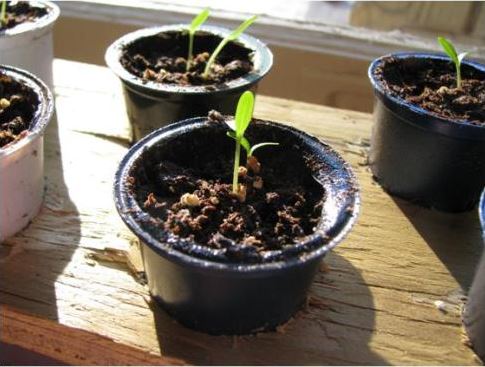A dear friend of mine gave me a book called Essential Virtues: Marks of the Christ-Centered Life by Jim Berg. It is based on the first chapter of 2 Peter, more specifically 2 Peter 1:5-11.
Before he writes about how we can and why we should grow more like Christ, he first takes a minute to make sure we actually belong to Christ. He gives one of the best analogies I have ever heard and uses the natural process of a seed to make his point. It is my hope that this may help clarify why the lie of “easy-believism” is so dangerous–
You have probably walked out of a superstore or other retail shop only to have the alarm go off as you exited the building. An alert store clerk may have approached you and asked to see your receipt. He was asking you to produce something that would demonstrate you truly did own the goods you were saying were yours.
Peter is doing the same thing in this passage, saying in effect, “If you do not have these virtues growing and developing in you, and you have no motivation to cultivate them, then you better check to see if you, indeed, possess, any saving faith upon which these are built.”
Do you remember in grade school when your teacher gave you a paper cup with potting soil in it, and you planted a bean or corn seed in the cup for a science experiment? You set your cups on the classroom windowsill, and in a few days some sprouts began to appear.
Suppose that nothing sprouted in your cup. Your teacher would say, “I’m sorry, but I guess your seed is dead.” You might even protest, “No, it’s not. I remember planting the seed.”
Regardless of whether you remember planting the seed, your seed is dead. Many believers who show no evidence of growth in Christ still protest that they remember a time when they asked God to save them. Peter, however, warns them to understand that if there is no growth, there is no saving faith. The receipt that they possess salvation is the evidence of some measure of Christ-likeness in their life. “Lack of spiritual growth is a sign of spiritual death.” If there is no desire to develop and no evidence of these virtues, there is no saving faith. The person has what James called a “dead faith” (James 2:14-26). His greatest need is to bow in repentance before The God he has ignored and accept Christ as his Savior from his sins. He will then possess an eternal life that will sprout likeness to Christ in him.

